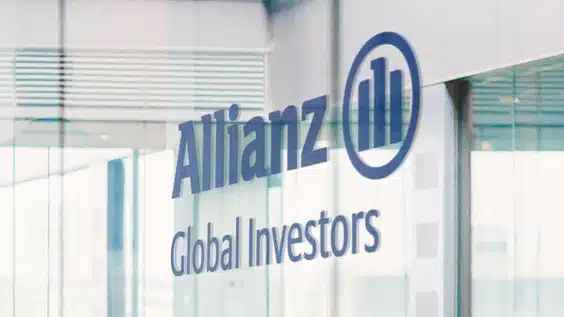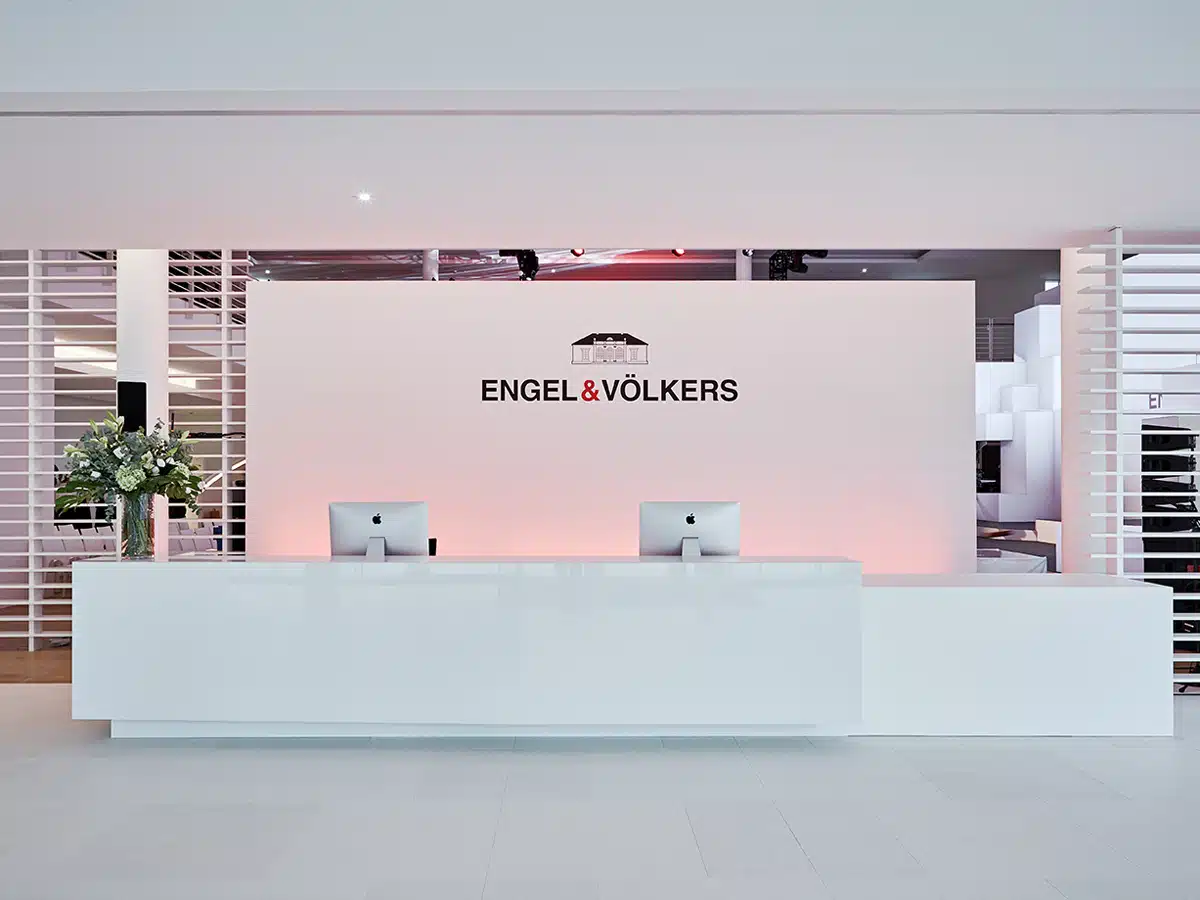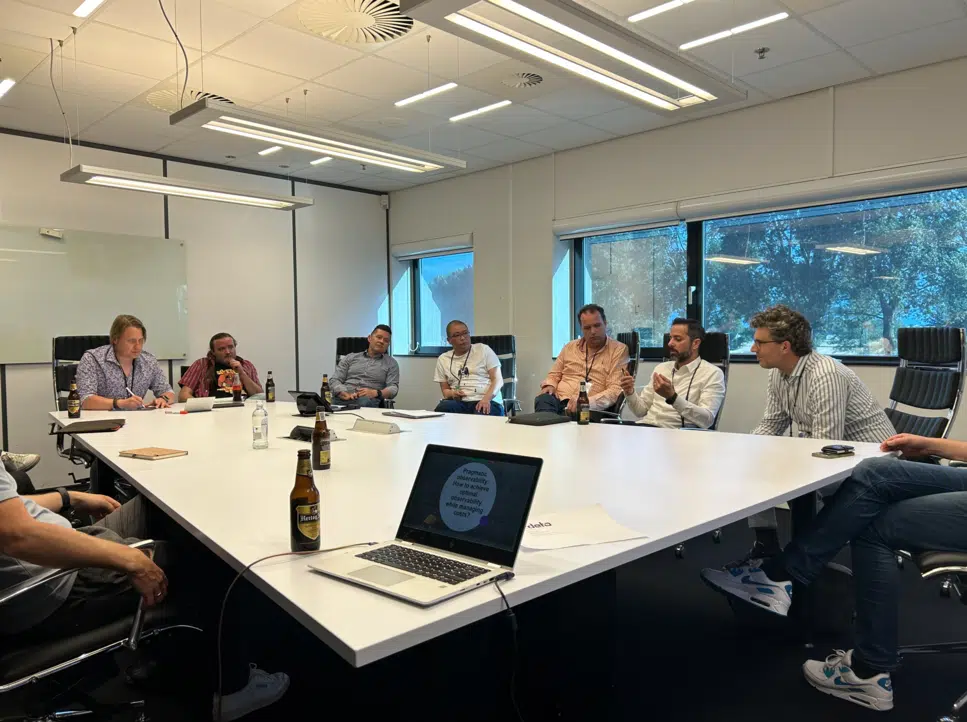We recently spoke with Amy Doyle, Technical Recruiter at WeTransfer as part of our increasingly popular #TalentQA series.
Amy discusses her background in recruitment, the benefits and challenges of working in talent acquisition for both startup and scale-up businesses and offers her advice on how recruiters can stay relevant in today’s digital age.
Third Republic (TR): Could you explain a bit about your time working in Talent Acquisition and the changes you have seen throughout the years?
Amy Doyle (AD): I have been in the industry now for about 3 years, so still quite early days for me. But actually, within that time I have been lucky enough to work in a startup, scale-up and also a corporate company. In my relatively short time within the industry, I have had quite a variance of experience, because I’ve also had experience in both in-house and agency recruitment as well.
Actually, I think it’s super interesting to have been able to experience both in-house and agency recruitment because as an in-house recruiter, you sometimes don’t view agency recruiters in the best light. It’s definitely been beneficial for me to have seen both sides of the coin, as it makes my working relationships with agency recruiters much more positive.
When I started my recruitment journey, I chose to focus more on technical recruitment. I’ve always really preferred the challenge of technical recruitment. It’s a really interesting industry for me because I don’t come from a tech background myself, so it’s been great learning about everything to do with engineering, development, etc.
In terms of changes to the industry – I haven’t seen many great changes in my few years in recruitment. However, moving from startup to scale up and agency to in-house is definitely a change in itself.
TR: What are the benefits and challenges of working in talent acquisition for startup and scale-up businesses?
AD: Working in a startup – there are a lot of benefits! You learn so much because you really are building recruitment and talent acquisition from the ground up. Comparing this with talent acquisition in a scale-up for example, where there is a bit more structure in place.
When it comes to recruitment in a startup there isn’t really a strict structure in place, so you’re fully responsible for the whole cycle. Based on this, the learning curve in a startup is a lot steeper, mainly due to the fact that it’s generally a small team or even just one person.
One of the more challenging aspects of working for a scale-up is the fact that it’s a much bigger company, so, if you want to post a job ad, for example, there’s a whole other department that you’ll have to go through and get permissions from. This, in turn, demonstrates the benefit of working for a startup, in that, you have more autonomy and control of the entire process.
A key challenge of working within a startup is – finances. Within a startup, specifically within tech, you’re competing with all these huge, well-known companies, who can offer large salaries and major benefits packages. This isn’t really something that most startups can offer, so, it’s really about finding that USP and sourcing the people who would be comfortable working in a startup. It’s important to dive into candidates quite early on in the process and try to find out whether the startup environment would suit them.
Talent acquisition within a startup involves a lot more active sourcing since you don’t get as many people knocking on your door for roles. Whereas working within a scale-up now, we get a lot of candidates coming to us for roles.
TR: What challenges, if any, have you experienced when recruiting technical talent at WeTransfer?
AD: Because it’s such a large company, my main challenge is dealing with a large amount of hiring managers and hiring teams. The challenge is finding the sweet spot with these teams and being on the same wave-length when it comes to hiring.
It’s important to build a great deal of trust and cooperation with the hiring teams, which I think can be a challenge in any business. They know exactly what they want to hire, so communication is important and letting them know that the talent that’s out there, might not exactly meet their requirements. There has to be some room for compromise, from both sides.
TR: What sort of strategies do you adopt in terms of attracting, engaging and securing technical talent at WeTransfer?
AD: We’re really lucky that a lot of high-quality talent applies to work for us directly. This is something that is incredibly new to me as well because I’m used to having to reach out and actively source candidates – of course, it depends on the role.
We’re in a great position in the market, so the focus for us is really on the candidate experience. It’s incredibly important that the candidates we speak to have a positive experience throughout the entire process, regardless of whether they didn’t make it to the first round, or whether they’re offered a position.
It’s important that they leave with a positive impression of us and that they’re moved through the process as quickly and efficiently as possible. Having a smooth recruitment process means a lot because essentially, time is money. If the process is too long, then the candidate will almost certainly lose interest.
It’s the candidates market now, especially in the world of tech recruitment, so you have to ensure there aren’t any roadblocks preventing processes from running smoothly.
Another thing we do is, our engineers, developers, etc. regularly speak at and attend networking events and conferences. We have found that we do get quite a few applicants from this. It’s a great way to get the brand out there, interact with peers and give them an insight into the company itself. So, this is quite a big source of applications for us as well.
TR: Have you recognised a skills gap, specifically in technical talent during your time in the industry?
AD: I think across the board, be it developers, engineers or any other tech role – demand is higher than supply! This has been the case since I started in tech recruitment and I can’t see it changing for some time. The pool of talent is so small, that everyone is competing for such a small number of people to join their businesses.
So as opposed to a skills gap in a specific area of tech, I think the issue is a lack of technical skills across the board for technical roles. Something that goes hand-in-hand with this as well, is the small amount of female talent present in the tech space. This is highlighted on a daily basis when looking through applications and such a small percentage of them are from female tech professionals.
It would be great to see an increase in tech skills in general in the market, but specifically when it comes to females in tech.
TR: Do you think that this shortage of skills is driving a change in candidate behaviours?
AD: Definitely, I think because tech candidates tend to have so many different offers on the table, they tend to view the company culture and the values of the company in much higher regard than salaries.
The questions that I get when I conduct screen calls are generally about the company culture and those sorts of questions. Never do I get questions around salary.
Since tech candidates are in such high demand, they can place more emphasis on the whole package now. They are in a very privileged position. It’s become much more about getting the right work-life balance, as well as working with a team that can really stimulate and inspire you.
I’m finding more and more candidates are conducting their own research around company culture, values, etc. in the background before applying to roles, and throughout processes in order to really ensure it’s the right fit for them.
TR: How should businesses react to the changes in candidate behaviours?
AD: I think businesses need to be aware of the changing market and what candidates are valuing. It’s a good idea to look within the business, ask current employees what they value, what’s working and maybe what isn’t so successful.
It’s important to invest in company culture, and ensure that your values aren’t just something that is painted on the wall but something that everyone in the company also lives and breathes. Culture is something you can’t fake.
You have to be adaptive – if the company is crying out for more flexible hours, or remote working, you need to listen to your employees because it’s likely that future employees will want the same things.
TR: Would you say that being a recruiter in today’s day and age requires more advanced relationship and people management skills?
AD: Most definitely, it’s such a competitive market that it’s crucial to be able to build strong relationships. It’s also super important to build trust and be transparent with clients and candidates if you want to break away from the very real recruiter stigma.
It’s vital to have the skills to be able to build personal relationships. People can definitely pick up on whether you’re sending the same messages to everyone and when you’re being genuine. Building respect with the people that you’re working with goes a long way.
TR: What other emerging trends are you seeing in the talent acquisition industry?
AD: One thing that I’m really seeing a lot of more recently, is candidates distancing themselves from the standard job hunting platforms, such as LinkedIn because being present on these platforms is becoming too much of a headache. Platforms like LinkedIn, continue to be overused by both recruiters and in-house talent teams pushing candidates to find new ways of looking for work.
It’s important to keep up to date with the ways in which candidates are looking for work and adapt to these changes in order to secure the top talent.
TR: We live in an increasingly digital world; how can recruiters keep up to date with the ever-evolving technology and techniques in the industry?
AD: I think it’s really important to build a recruiter network. In this day and age, it doesn’t matter whether it’s local or international, but I find that a strong network really helps. The recruiter network is incredibly helpful and everyone is really eager to share things they have learned and their own experiences in the market.
I’m part of a lot of Slack, LinkedIn, Facebook and WhatsApp recruiter groups and they are really great for sharing resources and new tools, and if you have any questions there’s always someone happy to answer. I find it really helpful because you can’t always be involved in everything, so these groups are a great way of keeping in the know on a global level.
TR: Finally, do you think that recruitment agencies can provide value in these competitive, fast-moving markets?
AD: I definitely think that they can, especially with very niche roles. Sometimes, in-house recruiters can be spread extremely thin. It depends on what’s going on within the business and what the workload is like, but I think during busy periods, agencies can provide a huge help.
In-house teams can often be only one or two people, and if processes start to slip, it can be extremely damaging to the companies reputation. So, to maintain the speed of processes it can be incredibly important to seek help from agencies who have similar values to your company.
If you’d like to take part in our #TalentQA series or you’re looking to source technical talent, get in touch today!




